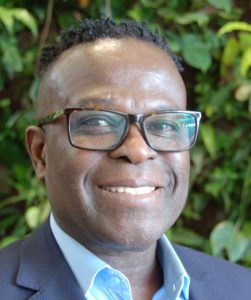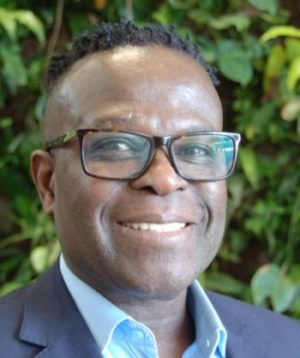
Friday 26 July 2024
————————————————-
“We give Indigenous people a ‘shvt’ load of money, so what is their problem? Confronting the ignorant and cynical narrative at the dinner table.”
by Kwaku Kusi-Appiah, writing on un-ceded territory of the Algonquin Anishnaabeg people
————————————————-
“We are thankful to be able to work and live in these territories. We are thankful to the First Nations, Métis and Inuit people who have cared for these territories since time immemorial and who continue to contribute to the strength of Ontario and to all communities across the province of Ontario.”
Legal Aid Ontario
“Together, Canadians must do more than just talk about reconciliation; we must learn how to practice reconciliation in our everyday lives – within ourselves and our families, and in our communities, governments, places of worship, schools, and workplaces. To do so constructively, Canadians must remain committed to the ongoing work of establishing and maintaining respectful relationships.”
National Centre for Truth and Reconciliation
——————————————————–
Introduction:
The month of June 2021 was a tough one for us Canadians: from the discovery of Indigenous mass graves to the murder of a Muslim family, and to high level resignations in the military, we are seeing the sad history of Canada being played right in front of our eyes in slow motion (Shimooka, 2024; Aljazeera, 2023; Miller, 2023; Anderson, 2021). Alas, we may not be immune to what has been happening to the country of our neighbours to the south.
We settler colonialists of Turtle Island (i.e., Canada) are as guilty as our neighbours to the south when it comes to the treatment we have meted out and continue to mete out to the ‘other’. It is time we sat up and made reconciliation a matter we hold dear.
We are all part of the solution:
And so let us resolve to make bigotry, racism, and colonialism things of the past. We cannot de-colonize and Indigenize without acknowledging that there is a problem.
The following are eight (8) ways in which non-Indigenous Canadians can engage with the process of reconciliation with Indigenous people, the original people of Turtle Island:
#1. Recognize the word ‘Indigenous’ refers to diverse and distinct nations in Canada:
Indigenous is a collective name for First Nations, Inuit, and Métis peoples, which includes hundreds of distinct and independent nations across the country (and even the world), each with unique histories, traditions, and languages (Statistics Canada, 2011; Regna, 2001). When engaging with the process of reconciliation, it is important to remember the diversity among First Nations, Inuit, and Métis peoples.
One must ask those you interact with how they identify and learn the names of the nations on whose land you live and work. Avoid using terms that can be derogatory and offensive that homogenize and denigrate Indigenous peoples.
#2. Learn the history between Indigenous and non-Indigenous peoples:
Before we act, we must first learn! There is no Canadian history before Indigenous peoples but there is Indigenous history before Canada. It is important to remain mindful of this when engaging with the process of reconciliation.
#3. The history and legacy of residential schools is not positive:
To engage with the process of reconciliation, we must acknowledge residential school experiences, impacts and consequences, including the intergenerational trauma experienced by Indigenous peoples. Indian Residential Schools sought to “destroy Indigenous cultures and languages and to assimilate Indigenous peoples so they no longer existed as distinct peoples” (Moran, 2020). For over 150 years, Indigenous children were forcibly removed from their families and sent to these schools, with the last school not closing until 1996 (Miller, 2024).
#4. Explore the unique intersections between treaty, constitutional, Indigenous, and human rights:
Indigenous and non-Indigenous peoples have different relationships with the Canadian government. The legal rights of Indigenous peoples have changed since Europeans first arrived on Turtle Island, from the Doctrine of Discovery to Confederation and the subsequent Indian Act – these legal “rights” were based on the needs of the colonizers, not the intrinsic rights of Indigenous peoples (Henderson, & Bell, 2019).
To fully engage with the process of reconciliation, time and attention must be given to the power and agency that Indigenous nations are reclaiming, what that looks like and why it is important.
#5. Recognize the rich contributions that Indigenous peoples have made to Canada:
Canada is indebted to the diverse cultures and nations of Indigenous peoples and the rich history and knowledge they have contributed to Canada, including the country’s name (which likely comes from the Huron-Iroquois word ‘Kanata,’ meaning village or settlement) and our collective identity as a country (Government of Canada, 2020).
According to the Calls to Action, supporting Indigenous peoples’ “cultural revitalization and integrating Indigenous knowledge systems, oral histories, laws, protocols and connections to the land are essential to the process of reconciliation.” (Moran, 2020).
#6. Take action to address historical injustices and present-day wrongs:
Before acting, it is important to engage with anti-racism training. Anti-racism training teaches how to address unconscious biases about Indigenous peoples and unlearn harmful stereotypes. This type of education also provides the necessary tools to act in a culturally sensitive and well-informed way.
#7. Teach others:
Teaching others what we have learnt is a crucial step in engaging with reconciliation, as it deepens our own learnings and understanding and helps create a community of culturally safe people. When teaching others, it is important to refer and guide individuals to Indigenous sources of knowledge and information. While we can begin to teach people about the importance of reconciliation, and all that we have learnt, we must ensure it is grounded in the voices and knowledge of Indigenous peoples.
#8. Create a culturally safe environment:
To better understand the systemic structures of oppression and the importance of dismantling them, non-Indigenous people must learn about the treatment of Indigenous peoples within institutional environments, like schools and hospitals, and how anti-Indigenous racism has been embedded into policy and practice.
With cultural safety training, people can carefully and critically learn about the oppressive social structures within these institutions and how they impact the health and education of Indigenous peoples. Individuals and institutions can then begin to create and support equitable environments that are culturally safe and Indigenous-informed.
Conclusion:
Creating a culturally safe environment is an important step in creating a culturally safe Canada, wherein Indigenous peoples are included in all spaces, without barrier and with access to traditional knowledge and practices.
We can do this, tous ensemble!
Miguech!
Ma no asi!
—
Works Cited
Aljazeera News. (2023). Canadian white supremacist who killed Muslim family gets life sentence.
Anderson, C. (2021). Canada’s unmarked graves: How residential schools carried out ‘cultural genocide’ against Indigenous children. CBS News.
Government of Canada. (2020). Origin of the Name “Canada”. Statistics Canada.
Henderson, W., & Bell, C. (2019). Rights of Indigenous Peoples in Canada. In The Canadian Encyclopedia.
Miller, J. (2024). Residential Schools in Canada. In The Canadian Encyclopedia.
Moran, R. (2020). Truth and Reconciliation Commission. In The Canadian Encyclopedia.
Regna, D. (2001). Invisible genealogies: a history of Americanist anthropology. Lincoln University of Nebraska Press.
Shimooka, R. (2024). Canada’s top military officer resigns, but the Forces’ many problems remain: Richard Shimooka in the Hub. MLI
Statistics Canada. (2011). Aboriginal Peoples in Canada: First Nations People, Métis and Inuit, National Household Survey, 2011.
Dr. Kwaku Kusi-Appiah,a demographer and environmentalist is an adjunct professor at Ottawa’s Carleton University. His research seeks to provide a clearer understanding of non-market strategies that determine access to community resources, and how the resulting inequities shape livelihoods in marginalized spaces of Canada and the developing world. Kwaku Kusi-Appiah was president of the Ghana Association of Ottawa (1995-2003) and senior advisor on Diversity to the Mayor of Ottawa (2004- 2006) where he led many multi-disciplinary teams to solve complex diversity issues in a timely & sensitive manner. In September 2018, Kusi-Appiah was appointed by the Lt. Governor of Ontario as a public member of the Board of Directors of the Ontario College of Social Work and Social Service Workers (OCSWSSW), a position he held till 2021..


Brilliantly delivered
Great write up. I’m proud of you.